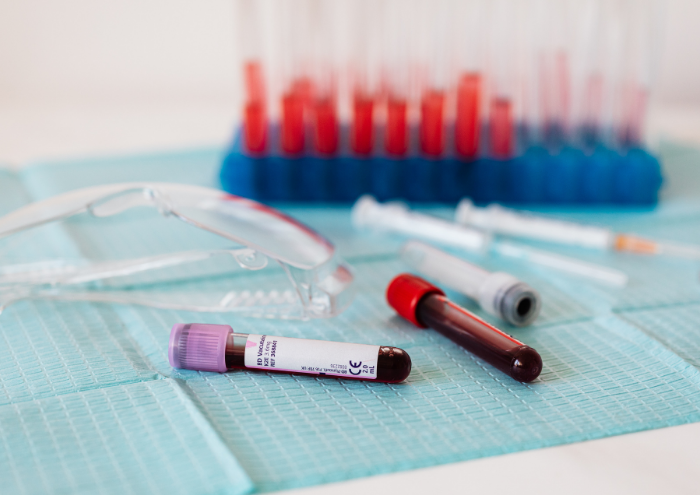Does this new study mean blood cancer patients aren't protected by the covid vaccine?
Research published suggests people with blood cancer may not have a good response to the first dose of the covid vaccine. We understand that this will be very concerning news, and want to explain more about what this research means for you.

Who was involved in this study?
The research looks at vaccine response in 205 people who received the Pfizer vaccine. Of these, 151 had cancer and 56 had blood cancer. These are very small numbers, but to give you an idea of how small it’s worth mentioning that within those 56 people are a vast spread of different diseases. This includes, for example, 11 people with chronic lymphocytic leukaemia (CLL), four with follicular lymphoma, three with acute myeloid leukaemia (AML), two with either MDS or MPN and one with Burkitt’s lymphoma.
With such a spread, it’s impossible to draw conclusions on each disease type and what other factors might influence covid vaccine response as the numbers of people included are so limited. Another important point is that the people in the study were mostly older people, and the response in younger people may be different.
Also, the study team collected samples from people as they came to hospital to receive their treatment. Around half of people included in this study had received treatment 15 days before their first dose of this vaccine, and the treatment they were receiving is likely to have had an impact on their immune response.
What did it show?
There are two main ways your immune system might fight off Covid: your antibodies and your T cells.
After one dose of the Pfizer vaccine, an antibody response was only seen in 13% of people with blood cancer and a T cell response was seen in 50%. In the 13% of people who did produce antibodies, the team looked to see if these antibodies were able to destroy the coronavirus to see if the antibodies functioned as they would in a healthy person. Most people with antibodies were able to destroy the virus indicating that they likely would have some protection.
The people who had an antibody response were not necessarily those who had a T cell response and many people with blood cancer who had a T cell response did not have antibodies. This shows that at least 50%, maybe more, had some sort of immune response to vaccination.
Clearly this is a mixed picture of results. First of all, it’s important to remember that this was only after the first dose of the Covid vaccine and we need to know what happens after the second dose. It’s also important to remember that as it stands, we do not know which cells give most protection against the coronavirus. If T cells are found to be the most important then these results are more promising for blood cancer patients.
For people with solid cancers, 95% of people who had their second dose within three weeks produced antibodies after the second vaccine compared to only 43% who had not received their second dose. There wasn’t enough evidence to show that this was the case people with blood cancer, but there is some indication that a booster dose at three weeks may improve the response for people with blood cancer. We are asking the JCVI, who are the committee that make decisions on vaccine scheduling, to consider whether bringing the second dose forward for all people with cancer could increase their protection.
What does this mean for me?
Whilst the findings of this study might immediately seem alarming, it’s important to emphasise that it is far from the full picture and there continues to be a significant gap in our knowledge about how effective vaccines are in people with blood cancer.
Until we fill that gap, it’s vital that people with blood cancer continue to be cautious and shield themselves as much as possible. If you have blood cancer and have had the vaccine, you cannot assume that it’s given you protection.
Yet it’s also incredibly important that people continue to have the vaccine and go for their vaccine appointments, as even a small level of protection could still be important, and we are yet to understand what happens following the second dose.
If you've got questions or concerns around the coronavirus, or about blood cancer in general, please don't hesitate to call or email our free, confidential support team on 0808 2080 888 or email [email protected]
What is Blood Cancer UK doing about it?
The study concludes that there is an urgent need for more research in this area, and this is something we have been working hard to set up. At the beginning of January, we formed a taskforce of leading researchers who were all planning studies in specific blood cancer types or were well placed to do so. All of these studies are planning a more specific approach to research in that they will delve deeper into a specific type of blood cancer, which will make their results more conclusive.
These studies are ready to go but as it stands there is a significant gap in funding. We are trying to find a way to support these studies and today, in light of this new data, will be urging the Government to invest in this research and find answers for people with blood cancer.
